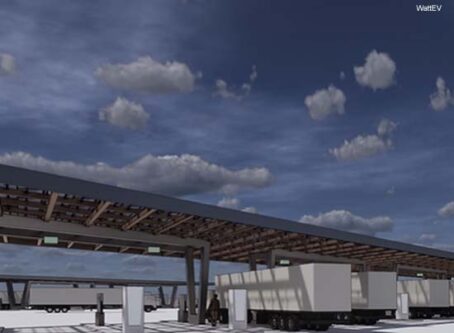U.S. District Court hears AB5 arguments
The arguments are in, and a U.S. District Court judge will soon make a ruling on claims that California’s Assembly Bill 5 violates the Constitution.
A hearing over the state’s controversial worker classification law was held on Nov. 13 in the U.S. District Court for the Southern District of California.
The California Trucking Association and Owner-Operator Independent Drivers Association argue that the law eliminates the independent contractor driver business model in the trucking industry and that it violates the U.S. and California constitutions.
What is AB5?
California signed AB5 into law in 2019 with the stated goal of stopping businesses from classifying workers who should be considered employees as independent contractors. AB5 is based on the ABC Test, which requires a business to demonstrate three factors are established before a worker can be deemed an independent contractor.
The “B prong” of the ABC Test appears to prevent a trucking company from classifying a truck driver as an independent contractor regardless of the level of control or any other factors.
The case
Soon after AB5 became law, the California Trucking Association filed a lawsuit based on arguments that it violated the Federal Aviation Administration Authorization Act. An injunction was granted against enforcement of the law on the trucking industry and remained in place until June 2022, when the U.S. Supreme Court declined to take the case.
The case was then sent back to the lower court, and OOIDA joined CTA as an intervenor to represent the rights of small-business truckers who travel in and out of California. The trucking groups contend that AB5 imposes undue burdens on interstate commerce in violation of the dormant Commerce Clause. In addition, OOIDA and CTA say that the law’s decisions on who it exempts violate the U.S. and California constitutions’ equal protection clauses.
California is defending the law, and the International Brotherhood of Teamsters is serving as an intervenor on the state’s behalf.
The hearing
Judge Roger Benitez, who granted the preliminary injunction against AB5 in 2020, presided over the Nov. 13 hearing.
Paul Torlina, government affairs counsel for OOIDA who attended the hearing as an observer, said that many of Benitez’s questions focused on how an out-of-state truck driver hauling to California could comply with the law and how it would be enforced.
The judge continued to use a hypothetical of a truck driver based in Arkansas picking up a load from a shipper in Massachusetts to be delivered to California.
“There were a lot of questions to the state about what to tell that trucker when he gets to the California border,” Torlina said. “Does he have to stop?”
Benitez also voiced concerns about how an interstate truck driver could operate if all 50 states had different laws concerning a driver’s classification.
“The defendants never had an answer for how the test could be passed by an owner-operator,” Torlina said.
Paul Cullen Jr., the attorney representing OOIDA, told the court that AB5’s effect on interstate trucking was that owner-operators decided to give up California loads and that it created a burden that the dormant Commerce Clause is intended to prevent.
What’s next?
Torlina said he expects the court to rule in the next few months. If the judge sides with the plaintiffs, he could issue another injunction or opt to keep the law but amend it to offer an additional exemption to interstate truckers.
Either way the judge sides, it is likely the case will be appealed to the U.S. Court of Appeals for the Ninth Circuit. That ruling then could again be petitioned to the U.S. Supreme Court.
Torlina said he expects the case to continue to play out over the next 18-24 months. LL









